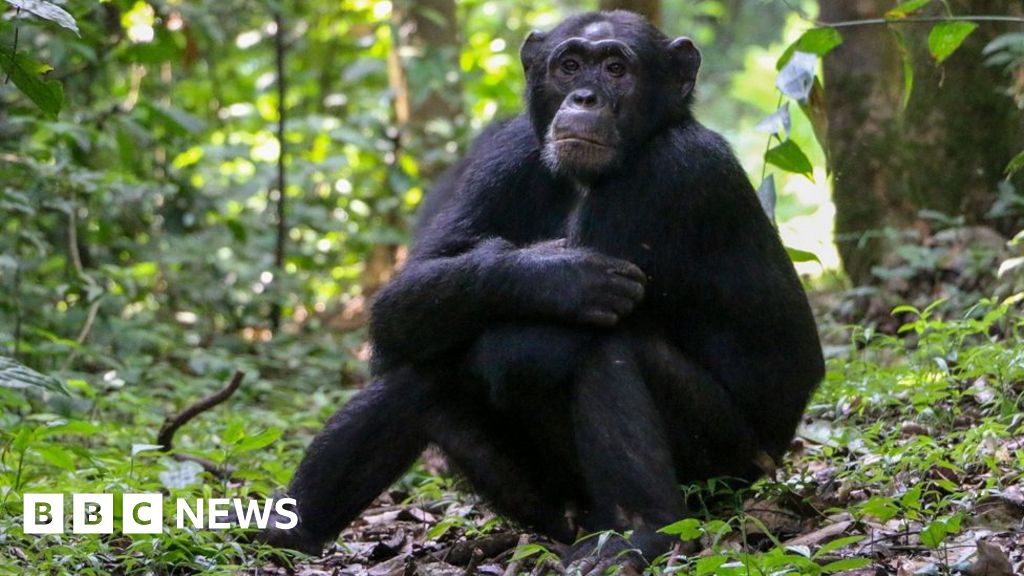
In the lush forests of Uganda, wild chimpanzees have been observed using medicinal plants to treat injuries and illnesses. According to a study published in the journal PLOS One by researchers from the University of Oxford, these primates exhibit self-medication behavior by consuming specific plant species that have antibacterial and anti-inflammatory properties. This is not a new phenomenon; chimpanzees have been known to use medicinal plants for centuries in local traditional remedies. However, this study provides the most comprehensive analysis to date of the self-medication practices of these primates.
The researchers monitored 51 chimpanzees from two communities in Budongo Central Forest Reserve over a period of four years. They observed sick or injured animals and collected samples of plants that they consumed, which were then analyzed for their pharmacological properties. The study found that 88% of the plant extracts inhibited bacterial growth, and 33% had anti-inflammatory properties.
One notable instance involved a chimpanzee with an injured hand. The chimp was observed seeking out and eating leaves of a fern called Christella parasitica, which turned out to have potent anti-inflammatory properties. Another chimp with a parasitic infection consumed the bark of a cat-thorn tree (Alstonia boonei), which has both antibacterial and anti-inflammatory properties.
The researchers noted that these discoveries could aid in the development of new medicines for chronic inflammatory diseases and antibiotic-resistant bacteria. They also emphasized the urgent need to preserve these forest pharmacies for future generations.
Chimpanzees are not alone in their use of medicinal plants. Other primates, such as orangutans, have been observed using leaves to treat wounds and applying them directly to injuries. Dolphins have been seen rubbing against antibacterial corals and sponges to treat skin infections.
The study's lead author, Dr. Elodie Freymann from the University of Oxford, stated that “after spending months in the field collecting behavioral clues that led us to specific plant species, it was thrilling to analyze the pharmacological results and discover that many of these plants exhibited high levels of bioactivity.”
The researchers also noted that with chronic inflammatory diseases and antibiotic-resistant bacteria becoming increasingly urgent global challenges for human beings, the medicinal plants used by chimpanzees could provide valuable new medicines. However, they emphasized the importance of preserving these forests and their inhabitants to ensure that future generations can continue to benefit from their knowledge.



